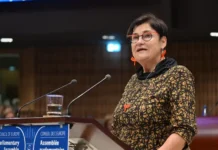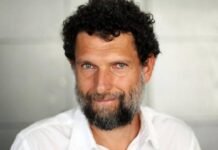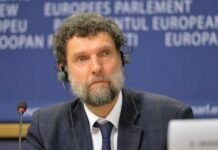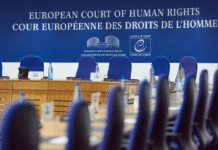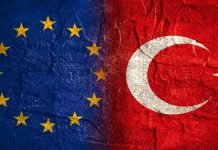Nationalist Movement Party (MHP) leader Devlet Bahçeli, President Recep Tayyip Erdoğan’s far-right ally, renewed his call for the closure of Turkey’s Constitutional Court (AYM) at his party’s parliamentary group meeting on Tuesday.
According to a report by Deutsche Welle Turkish service, Bahçeli accused the country’s top court of supporting “traitors,” criticizing the AYM for its rulings on philanthropist and activist Osman Kavala, the former co-chair of the pro-Kurdish Peoples’ Democratic Party (HDP) Selahattin Demirtaş and former HDP deputy Osman Baydemir.
In March Bahçeli slammed the court’s decision to return an indictment seeking the shutting down of the HDP, saying its closure should be an imperative. “The MHP will closely follow the developments and will fight the separatists, terrorists and traitors who want to hide behind the cover of the law,” Bahçeli said.
The AYM in March returned the first version of the indictment to the chief prosecutor’s office at the Supreme Court of Appeals for review on the grounds that there were deficiencies in the indictment. The prosecutor, however, submitted a new indictment, comprising 850 pages, to the AYM in July. The court then decided to hear the case against the HDP.
During his address in parliament on Tuesday, Bahçeli also suggested that Kavala, whose imprisonment has strained ties between Turkey and the West, should be stripped of Turkish citizenship and sent into exile once he is out of jail.
Kavala, who has yet to be convicted by a court, has been in prison since 2017. Turkey and several Western countries barely avoided a diplomatic crisis after 10 ambassadors released a statement on October 18 calling for Kavala’s release on the fourth anniversary of his arrest.
“Our suggestion regarding Kavala is this: This pro-Soros person should first serve his sentence in Turkey if he is convicted, then he should be stripped of Turkish citizenship and sent to one of the countries of the 10 ambassadors,” Bahçeli said.
President Erdoğan over the weekend threatened to expel the ambassadors, accusing them of interfering in Turkey’s internal affairs; however, he stepped back from his threats on Monday after the United States and several of the other concerned countries issued identical statements saying they respected the UN convention on diplomatic relations that required diplomats not to interfere in the host country’s domestic affairs.
Kavala has faced a series of shifting charges linked to 2013 anti-government protests and a coup attempt in 2016.
The Council of Europe (CoE) issued a final warning to Turkey in September to comply with a 2019 European Court of Human Rights order to release Kavala pending trial.
If Turkey fails to do so by its next meeting on November 30-December 2, the COE could vote to launch its first disciplinary proceedings against Ankara.


